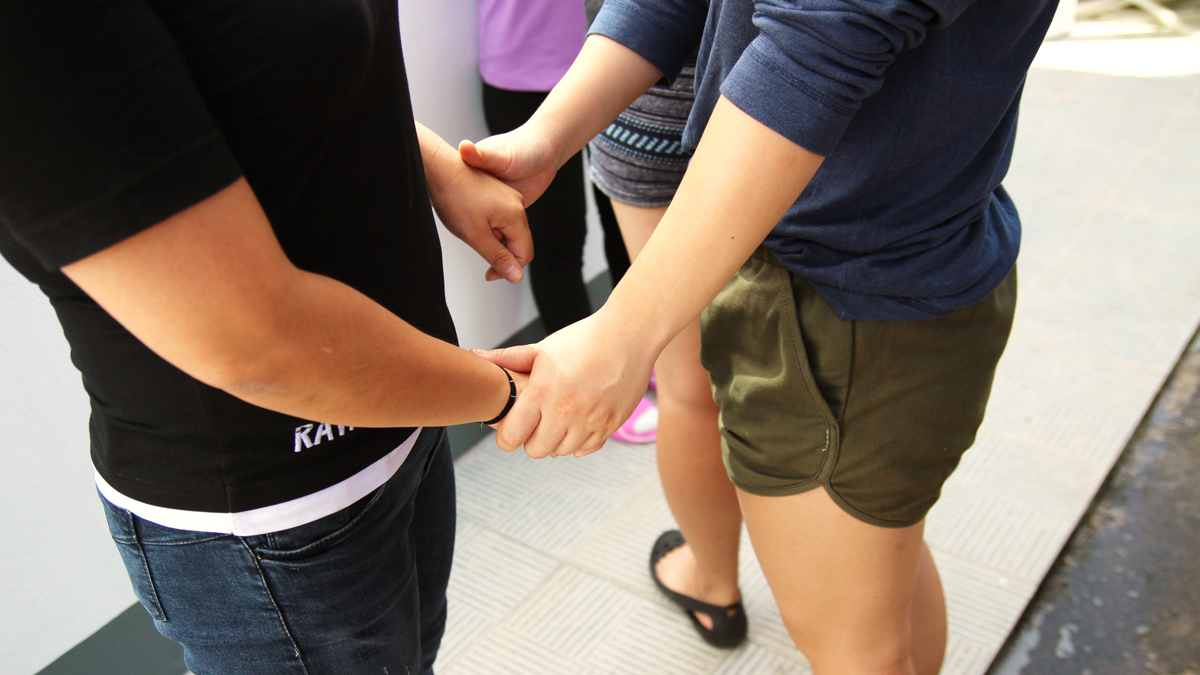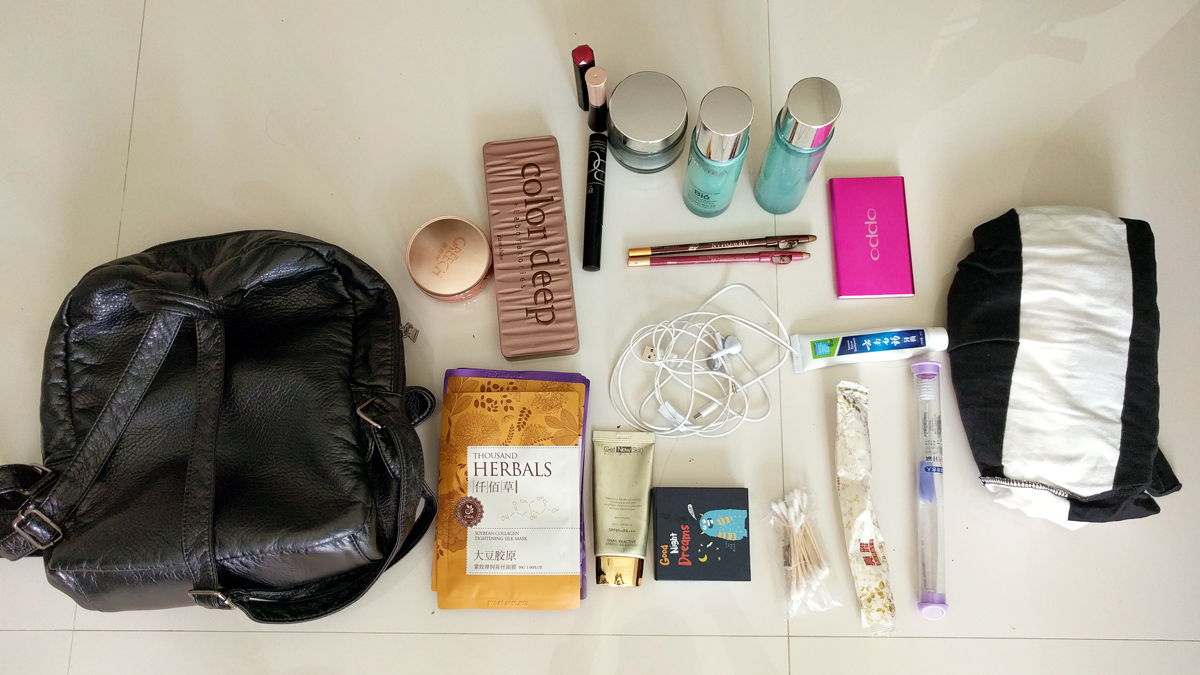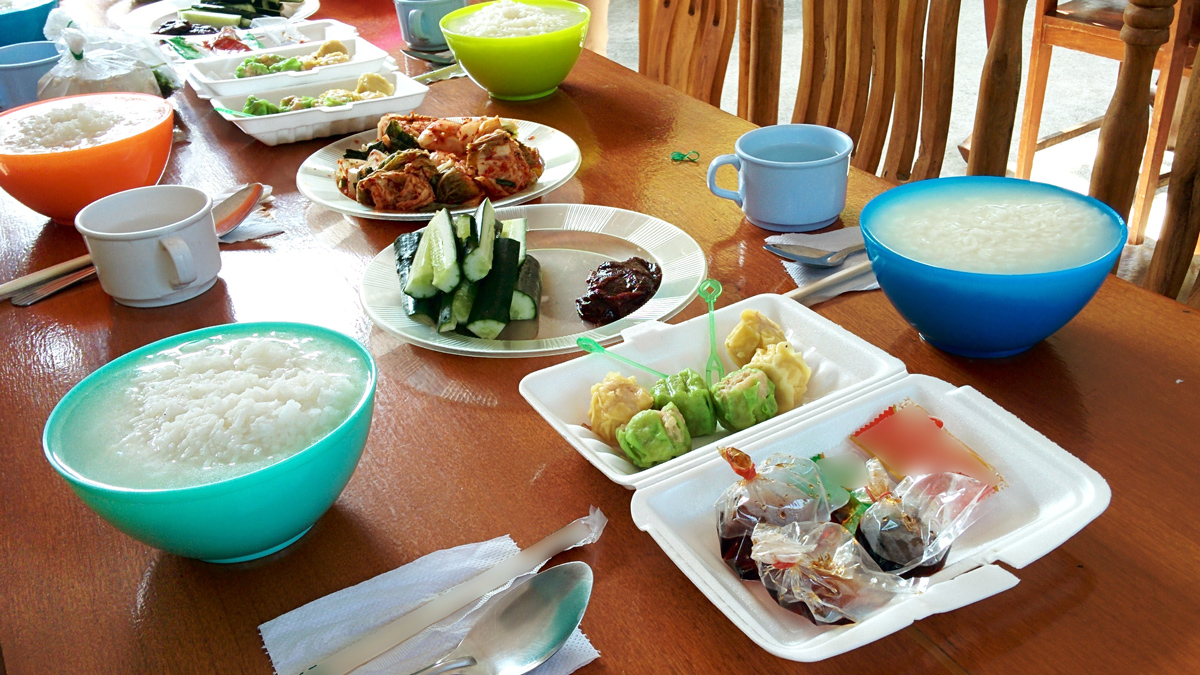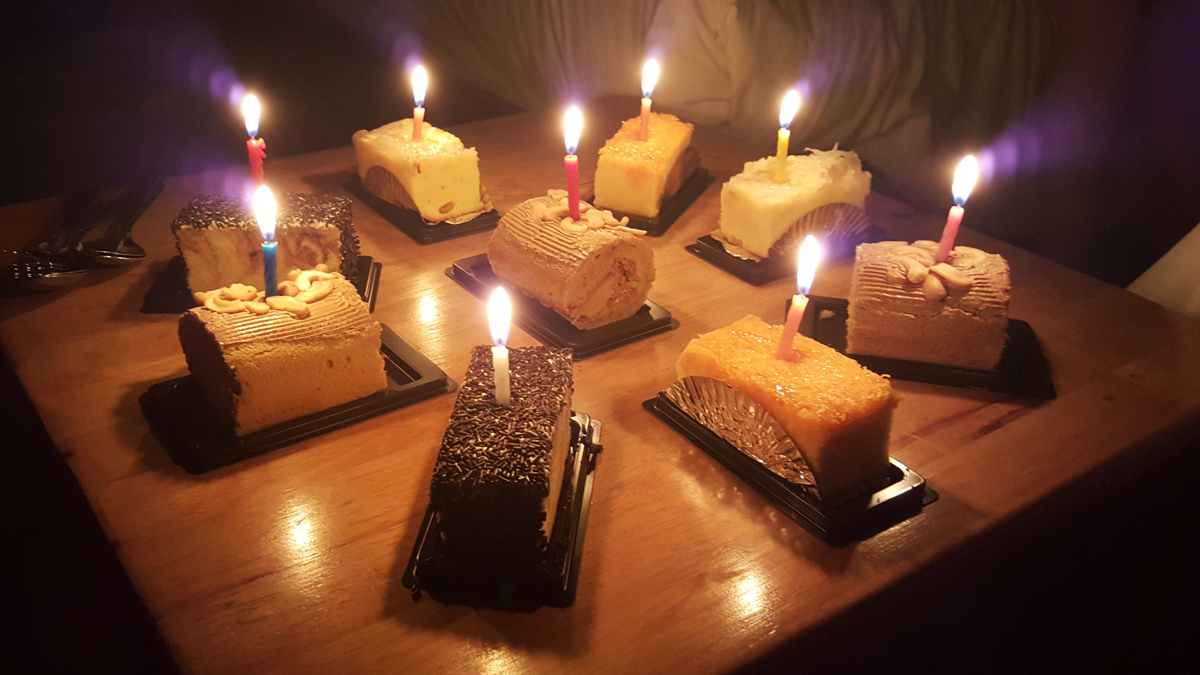North Korean Refugee Rescues: An Update from Our Field Manager
Over the past few years, the impact of COVID-19 has had a devastating effect on the day-to-day lives of North Korean people. Pandemic-related border lockdowns, increased surveillance, and unprecedented restrictions made it impossible for North Koreans to escape and reach freedom.
After a painstakingly long pause on rescues, at the end of 2022 we were finally able to start moving people safely again. Our field team has worked tirelessly to establish new, viable routes and adapt to circumstances on the ground. Navigating unprecedented restrictions and developing new routes has led to significantly higher and extremely volatile rescue costs, but our commitment is stronger than ever to help North Korean refugees reach freedom.
We recently sat down with our field manager, Jennifer* to hear directly about the current needs, challenges, and potential of this new era of rescues.

Could you give us a general overview of the situation in China?
So much has changed since the start of the pandemic. Activists have been kicked out of the country; brokers no longer want to do this work because of the increased surveillance and restrictions. The number of underground rescue networks has shrunk significantly. Navigating these challenges puts us at higher risk, which means that we have to use more resources, including people on the ground, to guarantee that our groups move safely. Because of the increased costs, we soon might have to ask people to wait to be rescued and it’s agonizing, especially because timing is critical in the underground railroad. There are very few moments when everything aligns and it is safe to travel, but because we don’t have funds, North Korean refugees lose those rare, precious opportunities. The North Koreans I’ve been in communication with are living in constant fear because of the increased use of security technology by the state, such as facial recognition with AI. On top of that, domestic violence continues to be a serious issue for many North Korean women who were trafficked or forcibly married in China.
Is there a risk of being sent back to North Korea right now?
Refugees who are caught in China are forcibly sent back to North Korea where they are severely punished. However, because of the pandemic, North Korea sealed its borders in January 2020 and has yet to reopen them. This means that repatriation hasn’t been possible yet, but we are hearing rumors that North Korea will start receiving people again soon.
Many people who have tried to escape were arrested and we’ve heard that currently, there are a large number of North Korean refugees in Chinese prisons.
What kind of situations are people escaping from in China?
It’s mostly North Korean women who were trafficked or forcibly married to Chinese men. Some have been living in China for several years and the pandemic left them stranded with no way to escape. We had heard that some of these women were facing even worse treatment from their Chinese husbands than before. The people who arrived in China in 2019 or early 2020 only had a very short period of time to learn the language, culture, and to adjust before having to quarantine. It has been much more difficult for these people to try to escape from China.
More recently, some of the refugees we’re in communication with have serious health issues. But they can’t go to the hospital because they’re not Chinese citizens and would risk being arrested and sent back to North Korea. They are hoping to make it to South Korea to get the healthcare they need.

And what are some of the challenges that North Koreans in China face day-to-day?
They can’t go outside. There was already a lack of freedom to travel and move around freely before the pandemic, but it has only gotten worse since then. When I speak with them, it feels like they’re losing hope. The reality of how difficult and expensive the journey has become is discouraging, especially because they hear about people who attempted the journey and were caught and arrested. So for people who were connected with us recently, many were shocked to hear about our work. They said it was almost surreal because they didn’t think it was possible to get to freedom at this time.
What motivated these people to leave North Korea in the first place?
It’s different depending on the person. There are usually personal circumstances that lead them to look for better opportunities in China or South Korea. Many people are tricked into human trafficking. Some women choose to live with a Chinese husband of their own will. They believe it’s better to live in China in this way rather than live in North Korea.
What have been the biggest challenges for you?
While I'm very grateful that we've been able to resume rescues, it's a shame that we can only move a limited number of people due to increased costs and heightened security. I stay in close contact with refugees in China who are hoping to reach freedom, and some are in urgent situations. A woman who was 4 months pregnant had to make the journey before her belly got too big. Some refugees have health conditions that need immediate treatment, but they’re unable to go to the hospital. My hope is that we can rescue as many people as possible so they can experience freedom and live the full lives that they deserve.

Since restarting rescues last December, the significant increase in costs have depleted our rescue and resettlement funds, leaving many North Korean refugees waiting, once again, for an opportunity to escape. Your support is needed now more than ever.
Throughout the month of June, all one time gifts made here will go 100% towards our rescue and resettlement efforts. In honor of World Refugee Day 2023 and the countless people waiting for their rare and precious opportunity to reach freedom, give a gift today.
Give Today
*Jennifer is a pseudonym used to protect our field manager’s identity and avoid compromising this work.
Women’s History Month: Honoring the Bravery of North Korean Women
By: Jennifer Kim
Jennifer* is Liberty in North Korea’s Field Manager. Over the years, she’s carefully stewarded our secret rescue routes and helped countless North Korean refugees reach safety and freedom.
Approximately 70% of North Korean defectors are women. Throughout their journey, they face unimaginable challenges, including human trafficking, confinement, and sexual violence.
For Women’s History Month this year, we asked Jennifer to share her experiences supporting North Korean women who have made the brave decision to escape, and bring light to the stories of real people behind the numbers and statistics.

A Transformative First Mission
When I first began this line of work, I was filled with both excitement and anxiety. “Will I be able to connect well with these people?” “Will the field be too dangerous?” Even in my position as a staff member, there were times when the situations we encountered felt riskier because I was a woman.
On my first mission, the group we brought to safety were all women. From their small requests, like asking for sanitary pads, to moments where they cautiously shared their harrowing experiences of human trafficking in China, I found that we could connect on a deeper level because I was also a woman. I realized my role wasn’t just to be a staff member, but to stand by these people as they needed me, as a fellow woman. From then on, the fear I had initially felt about this work transformed into conviction.
North Korean Women At the Forefront of Resistance and Survival
After meeting many North Korean women defectors, I’ve come to learn that there are unique challenges and experiences that only they face. Women in North Korea are not as restricted to job assignments as men, so they’re the ones actively engaged in informal economic activities. They’re running their own black-market businesses and trading smuggled goods, shifting economic power from the regime into the hands of the ordinary people.
Women also make up the majority of North Korean defectors at over 70%. In freedom, they’re leading advocacy efforts and raising awareness for this issue.
I've come to think that perhaps women in North Korean society were the first and most desperate to stand up in resistance.

At the same time, the reality is that women are more vulnerable to gender violence and crime. The moment they cross the North Korean border and set foot on Chinese soil, their precarious legal status and the fact that they are women become risk factors that can lead to human trafficking, sexual exploitation, and forced prostitution. If these dangerous situations lead to pregnancy and childbirth, women often remain in China for years, even decades, weighed down by the conflicting emotions of their longing for freedom and their maternal instincts.
All of the women I met during my first rescue mission were survivors of being trafficked into forced marriages. While there are some cases where these women meet kind families and live in a relatively less dangerous environment, most have to endure difficult lives. One woman who we rescued in 2024 said that in the early stages of her life in China, she was confined and tied up in a single room by the man who bought her. Others had to do forced labor in one of China’s many factories.
Not a News Story, But a Person’s Story
About ten years ago, I watched a video of a woman my age testifying about the hardships and sexual violence she experienced during her defection from North Korea. As a South Korean, I couldn't believe that such things were happening just across the border. Shocked and ashamed of my indifference, I cried for a long time, then resolved to do something.
North Korea used to be something I only saw and heard about through a TV screen. Now those distant news stories have become the personal experiences of the North Korean mothers and friends I’ve met in the field.
At first, I simply wanted to help as best I could. But as time went on and I met more North Koreans, my perspective gradually changed. Now, I feel like I'm not so much ‘helping’ as I am meeting incredible superwomen who have overcome tremendous adversity.
My role is to constantly remind them of their resilience and potential, so they don't forget it themselves.

“This is My First Time Being Treated Like a Queen”
After a successful mission, our team ensures our newly arrived North Korean friends have a proper meal, get some rest, and receive basic necessities. On one occasion, one woman told me, “This is the first time in my life that I have been treated like a queen.”
She had just reached freedom after ten years in a forced marriage to a Chinese man. Her words resonated with me deeply. I realized once again that our work isn't simply about helping people achieve physical freedom; it's about restoring a person's forgotten dignity.
That woman has since resettled in South Korea and runs a small shop. She’s continued to stay in contact with LiNK, sharing updates about her life. One day, she shyly announced her marriage. She’s starting a new chapter with a person she chose and wanted.

Walking Together In Solidarity
Through the friendships I’ve made and stories I’ve witnessed in the field, my connection to this issue has deepened over time. These women aren’t just “nameless” North Koreans, but people like us, living their daily lives; someone’s daughter, sister, or mother. I didn’t set out to do this work for over a decade. But day by day, hearing each story, meeting each person, and holding their hands has naturally led me down this path.
Listen to their stories, and I believe that you too will encounter a heart for the North Korean people.
– Jennifer Kim, LiNK Field Manager
*Jennifer is a pseudonym used to protect our field manager’s identity and avoid compromising this work.

Help North Koreans Win Their Freedom
From inside the country to on the global stage, North Korean women are driving change on this issue. Driven by necessity, desire to care for their loved ones, and aspirations to forge their own path in this world, their pursuit of freedom is both intentional and instinctive.
Liberty in North Korea doesn't just extend a helping hand to North Korean refugees—we’re cultivating the next generation of North Korean leaders, entrepreneurs, and advocates, and doing this work alongside them.
Become a monthly donor today at $20 per month to help more North Koreans reach safety and gain full authorship of their lives in freedom.




